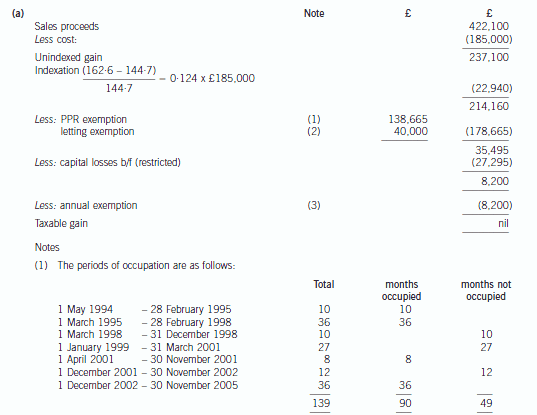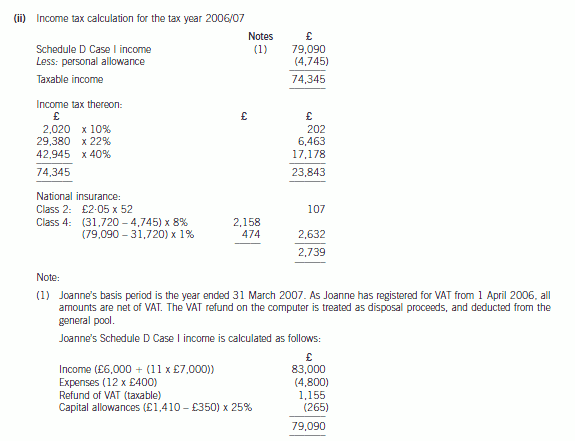ACCA考下来费用是不是很贵啊
发布时间:2021-05-27
ACCA考下来费用是不是很贵啊
最佳答案
在线支付给ACCA官方:
注册费:£79,一次性。
年费:£105,每年。每年5月8号前注册缴纳,5月8号之后注册次年1月1号缴纳。建议5月8号以后注册。
考试费:(注:所有考试费用都以早期缴费标准。)
(F1-F4费用)+103*5(F5-F9)+180(SBL)+129*3(SBR+2门选修课)=1260+(F1-F4费用,费用是每科70-80英镑)
下面小编为大家准备了 ACCA考试 的相关考题,供大家学习参考。
(c) Outline the problems with references. (7 marks)
(15 marks)
Part (c)
There can be significant problems with references, these include the fact that most referees are well known to the applicant and
hesitate to say anything critical. However, the more skilful reference reader learns to look for what is conspicuous by omission
although there is always the risk that the writer merely forgot.
Often there are glowing tributes designed to aid the candidate on their way and some can be too ambiguous to be useful.
It is also important to note that references are poor predictors of future performance, are time consuming for the referee and the
subsequent reader. A particular problem is that employers who want to rid themselves of unsatisfactory employees could write an
enthusiastic reference, or at best one which leaves a lot unsaid.
However, care should be taken when providing references. Potentially, there can be legal consequences if a reference is misleading
or misrepresents the person for whom the reference is provided.
In addition, problems can arise when references are sought too early in the recruitment process and therefore breach confidentiality.
(c) Assuming that she will survive until July 2009, advise on the lifetime inheritance tax (IHT) planning
measures that could be undertaken by Debbie, quantifying the savings that can be made. (7 marks)
For this question you should assume that the rates and allowances for 2004/05 apply throughout.
(c) Debbie survives until July 2009
Debbie should consider giving away some of her assets to her children, while ensuring that she still has enough to live on.
Such gifts would be categorised as PETs. Although Debbie will not survive seven years (at which point the gifts would fall out
of Debbie’s estate for IHT purposes), taper relief will reduce the amount chargeable to IHT. If gifts were made prior to July
2005, 40% taper relief would be available.
It is important to remember that Debbie’s annual exemptions will reduce the value of any PET when assets are gifted. Debbie
has not used her annual exemption for the last two years, and so she can gift £6,000 (2 x £3,000) in the current tax year
as well as £3,000 per year in future tax years. Debbie could therefore give away £18,000, saving tax of £7,200 (£18,000
x 40%). Debbie can also make small exempt gifts of up to £250 per donee per year.
Debbie should consider making gifts to Allison’s children instead of Allison (using, for example, an accumulation &
maintenance trust). This would ensure that the gifts were excluded from Allison’s estate.
It does not make sense for Debbie to gift shares in Dee Limited, as these qualify for full business property relief and therefore
are not subject to IHT.
As Andrew is shortly to be married, Debbie could give up to £5,000 in consideration of his marriage. This would save £2,000
in IHT.
Expenditure out of normal income is also exempt from IHT. This is where the transferor is left with sufficient income to
maintain his/her usual standard of living. Broadly, you need to demonstrate evidence of a prior commitment, or a settled
pattern of expenditure.
If substantial gifts are made, the donees would be advised to consider taking out insurance policies on Debbie’s life to cover
the potential tax liabilities that may arise on PETs in the event of her early death.
1 Stuart is a self-employed business consultant aged 58. He is married to Rebecca, aged 55. They have one child,
Sam, who is aged 24 and single.
In November 2005 Stuart sold a house in Plymouth for £422,100. Stuart had inherited the house on the death of
his mother on 1 May 1994 when it had a probate value of £185,000. The subsequent pattern of occupation was as
follows:
1 May 1994 to 28 February 1995 occupied by Stuart and Rebecca as main residence
1 March 1995 to 31 December 1998 unoccupied
1 January 1999 to 31 March 2001 let out (unfurnished)
1 April 2001 to 30 November 2001 occupied by Stuart and Rebecca
1 December 2001 to 30 November 2005 used occasionally as second home
Both Stuart and Rebecca had lived in London from March 1995 onwards. On 1 March 2001 Stuart and Rebecca
bought a house in London in their joint names. On 1 January 2002 they elected for their London house to be their
principal private residence with effect from that date, up until that point the Plymouth property had been their principal
private residence.
No other capital disposals were made by Stuart in the tax year 2005/06. He has £29,500 of capital losses brought
forward from previous years.
Stuart intends to invest the gross sale proceeds from the sale of the Plymouth house, and is considering two
investment options, both of which he believes will provide equal risk and returns. These are as follows:
(1) acquiring shares in Omikron plc; or
(2) acquiring further shares in Omega plc.
Notes:
1. Omikron plc is a listed UK trading company, with 50,250,000 shares in issue. Its shares currently trade at 42p
per share.
2. Stuart and Rebecca helped start up the company, which was then Omega Ltd. The company was formed on
1 June 1990, when they each bought 24,000 shares for £1 per share. The company became listed on 1 May
1997. On this date their holding was subdivided, with each of them receiving 100 shares in Omega plc for each
share held in Omega Ltd. The issued share capital of Omega plc is currently 10,000,000 shares. The share price
is quoted at 208p – 216p with marked bargains at 207p, 211p, and 215p.
Stuart and Rebecca’s assets (following the sale of the Plymouth house but before any investment of the proceeds) are
as follows:
Assets Stuart Rebecca
£ £
Family house in London 450,000 450,000
Cash from property sale 422,100 –
Cash deposits 165,000 165,000
Portfolio of quoted investments – 250,000
Shares in Omega plc see above see above
Life insurance policy note 1 note 1
Note:
1. The life insurance policy will pay out a sum of £200,000 on the death of the first spouse to die.
Stuart has recently been diagnosed with a serious illness. He is expected to live for another two or three years only.
He is concerned about the possible inheritance tax that will arise on his death. Both he and Rebecca have wills whose
terms transfer all assets to the surviving spouse. Rebecca is in good health.
Neither Stuart nor Rebecca has made any previous chargeable lifetime transfers for the purposes of inheritance tax.
Required:
(a) Calculate the taxable capital gain on the sale of the Plymouth house in November 2005 (9 marks)

Note that the last 36 months count as deemed occupation, as the house was Stuart’s principal private residence (PPR)
at some point during his period of ownership.
The first 36 months of the period from 1 March 1995 to 31 March 2001 qualifies as a deemed occupation period as
Stuart and Rebecca returned to occupy the property on 1 April 2001. The remainder of the period will be treated as a
period of absence, although letting relief is available for part of the period (see below).
The exempt element of the gain is the proportion during which the property was occupied, real or deemed. This is
£138,665 (90/139 x £214,160).
(2) The chargeable gain is restricted for the period that the property was let out. This is restricted to the lowest of the
following:
(i) the gain attributable to the letting period (27/139 x 214,160) = £41,599
(ii) £40,000
(iii) the total exempt PPR gain = £138,665
i.e. £40,000.
(3) The taper relief is effectively wasted, having restricted losses b/f to preserve the annual exemption.
(ii) Calculate her income tax (IT) and national insurance (NIC) payable for the year of assessment 2006/07.
(4 marks)

声明:本文内容由互联网用户自发贡献自行上传,本网站不拥有所有权,未作人工编辑处理,也不承担相关法律责任。如果您发现有涉嫌版权的内容,欢迎发送邮件至:contact@51tk.com 进行举报,并提供相关证据,工作人员会在5个工作日内联系你,一经查实,本站将立刻删除涉嫌侵权内容。
- 2021-04-14
- 2021-01-03
- 2021-03-12
- 2021-04-14
- 2021-03-11
- 2021-04-16
- 2021-03-11
- 2021-06-03
- 2021-03-10
- 2021-05-12
- 2021-01-05
- 2021-04-23
- 2021-04-16
- 2021-04-21
- 2021-01-06
- 2021-06-28
- 2021-05-12
- 2021-03-11
- 2021-01-16
- 2021-04-15
- 2021-03-12
- 2021-03-11
- 2021-04-22
- 2021-05-27
- 2021-04-23
- 2021-06-05
- 2021-05-29
- 2021-03-11
- 2021-01-03
- 2021-03-10